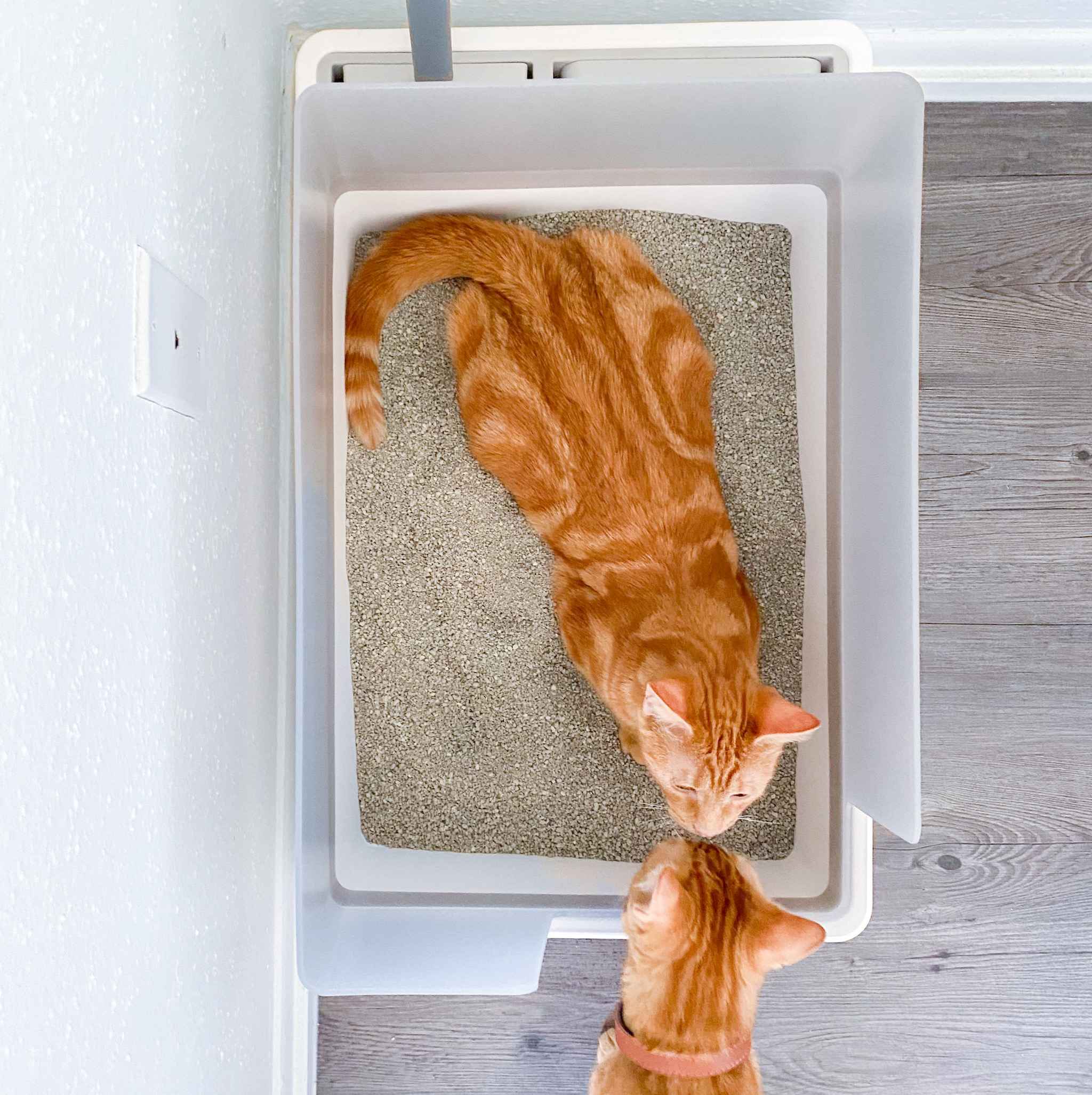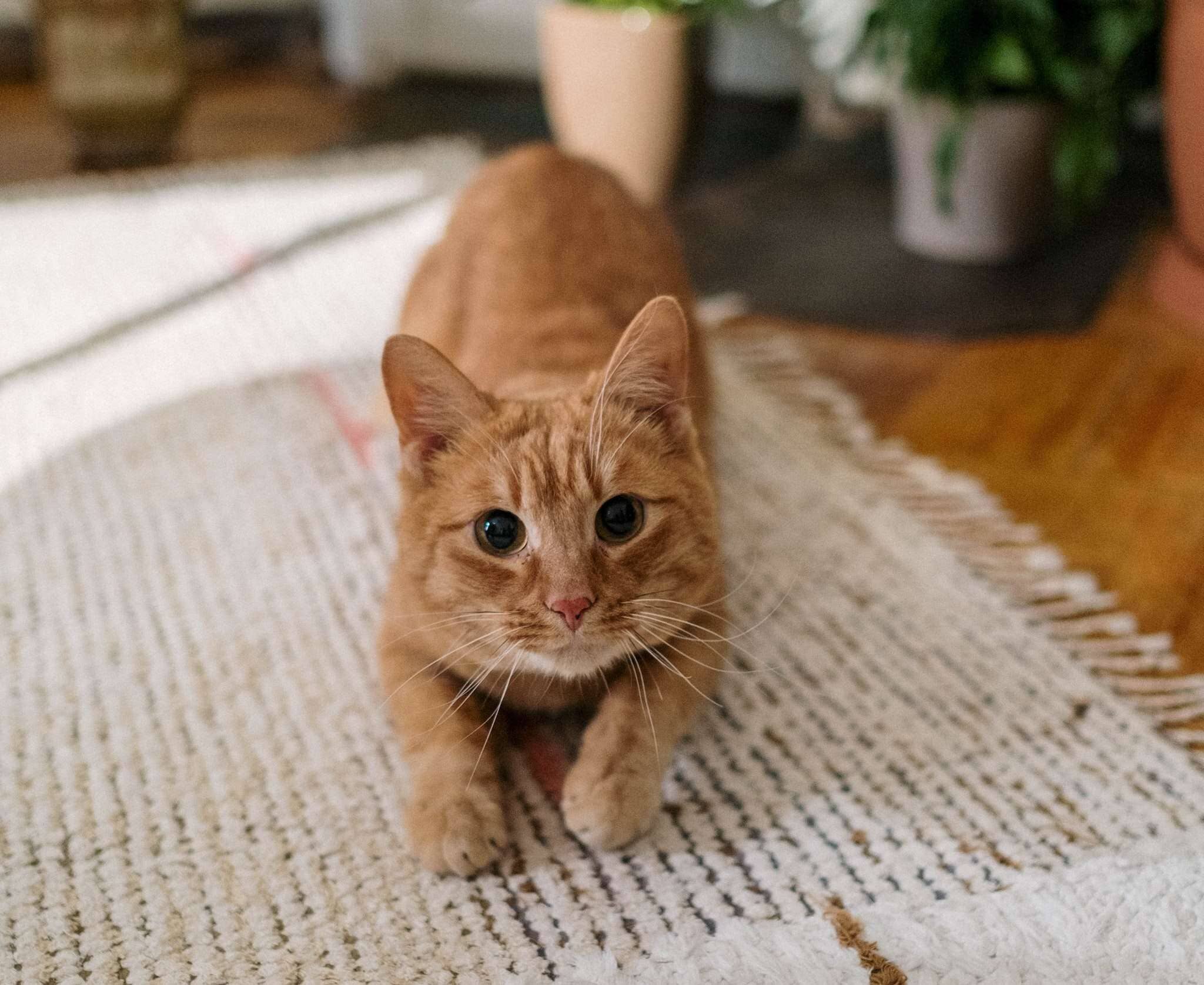Adopting a kitten is an exciting and rewarding experience, but let’s be honest—it’s a big responsibility! But don’t let that worry you. In this article, we’ll answer all the key questions about raising a kitten into a healthy, confident adult cat. We’ll cover topics like feeding, litter training, how to create a kitten-friendly home, and answer some common questions too! We also recommend looking at our new kitten checklist so you don't forget any supplies or steps when raising your kitten.
Here at tuft + paw, we are cat experts. The information in this article is based on consultation with a cat behaviorist, veterinarian, extensive online research, discussion with other cat parents, and our team’s own personal experiences adopting kittens.
Note: this article is for cat parents adopting a 8-12 week old kitten, not for cat parents who need to raise a kitten litter. If your cat has a surprise litter, consult your vet for guidance.
Understanding the Basics of Kitten Care
Before bringing your kitten home, it's crucial to understand the basics of kitten care. Here are some essential steps to take care of your kitten.
Providing Food & Water for Your Kitten
Kittens have greater nutritional requirements than adult cats, so you should feed them a high-quality food that is explicitly labeled as a kitten formula. Kittens need far more calories and protein than adult cats (relative to body weight) to support their rapid growth rate. The hungry little guys also need to eat at least three times a day. Avoid giving your kitten adult cat food or human food, as it may cause health issues or malnourishment. You can give treats to your kitten in moderation as long as they continue to eat the full recommended amount of kitten food.
Make sure your kitten has access to clean fresh water at all times. You can provide water in a clean bowl or a water fountain.

Dock Cat Bowl and Stand by tuft + paw - Shop Here
Litter Box Training
Many kittens instinctively know how to use the litter box, but sometimes you need to litter train them. See our article on how to litter train a kitten for more details, but here’s the basic idea:
- Choose a sand-like unscented litter and a kitten-friendly litter box.
- Set up the litter box in a quiet area with good visibility.
- Place the kitten in the litter box after every meal and nap. Show them what to do by pawing at the litter with your hand.
- Reward your kitten every time they use the litter box correctly.
- Never punish them for having accidents. Simply clean up the mess with an enzymatic cleaner and keep litter training them as before.
- Scoop the litter box everyday.

Cove Modern Litter Box by tuft + paw - Shop Here Credit: @abdulscats
Grooming Your Kitten
Kittens are usually good at grooming themselves, but you should also get them used to being groomed by a human. Brush their fur, trim their nails when they’re sleepy, and try to brush their teeth if you can. Pick them up often and touch different parts of their body (e.g. ears, paws) so they become comfortable with being handled. This will pay dividends when they have vet checkups.
Regular Vet Checkups
Regular vet checkups are essential to keep your kitten healthy, and establishing a solid relationship with your local vet is a huge asset. We recommend first visiting the vet within a few days of adopting your kitten. The vet will give your kitten a full-body examination, set up a vaccination schedule, and answer any questions you have. Your kitten will need to receive vaccinations in their first 16 weeks. By 4-6 months, you’ll want to have your kitten spayed or neutered to prevent hormone-related behavior like spraying and territorial aggression.
Creating a Safe and Stimulating Environment for Your Kitten
Kittens are naturally playful, but not every home is automatically a good fit for them. You need to take safety precautions and create a stimulating environment to ensure your kitten has a fun, enriching, and healthy life.
Kitten-Proofing Your Home
Kittens are curious creatures and can get into trouble quickly, so you need to kitten-proof your living space before bringing them home. This includes:
- Designating a safe area for your kitten to explore. If possible, keep them in one room with all their essentials for the first week so they can acclimate to their new environment.
- Setting up a litter box, food and water dishes, and a comfortable bed.
- Removing or hiding any potential hazards, including:
- Blind cords and dangling objects
- Chewable electronic cords
- Breakable objects and valuables
- Medications and small objects that might be ingested
- Plants that aren’t cat safe
- Keeping the toilet lid closed
- Installing screens on windows and doors to prevent escape. Open windows are the greater hazard because curious kittens may want to take a peek outside. When opening doors, make sure your kitten doesn’t make a break for it.

Zip Modern Scratching Post by tuft + paw - Shop Here
Providing Toys and Stimulation
Once you’ve kitten-proofed your living space, you can focus on the fun part: creating a stimulating home that keeps your kitten entertained and happy. Provide engaging cat toys that are safe and don’t have any small breakable components which could be ingested. Just like human babies, kittens are liable to put almost anything in their mouths!
Note: Don’t use your hand as a kitten toy. This may encourage your kitten to bite and scratch you when playing, which can be a hard habit to break. Instead, use a plush toy that they can really sink their teeth and claws into.
Here are some ideas for safe, fun kitten toys.
| Safe Kitten Toys | Unsafe Kitten Toys |
|
|
The second part of creating an enriching kitten home is your furniture. Every kitten should have a scratching surface, climbing space, cozy resting spots, and some good cat TV (e.g. an accessible window). You can get purpose-built cat furniture or find some DIY solutions. If you’re going to buy just one piece of cat furniture, we recommend getting a quality cat tree with multiple perches and sisal rope for scratching and stretching.
Fish Bone Cat Toy by tuft + paw - Shop Here Credit: @pixel.siberian
Socializing Your Kitten
The first nine weeks of a kitten’s life are a crucial window for developing good social skills and preventing behavioral problems down the road. During this time, try to expose your kitten to as many new experiences as possible (without freaking them out, of course). Introduce your kitten to new people, animals, and places to help them adjust to new situations. They may be nervous at first, but keep at it and they’ll gradually build confidence. Be sure to give them praise and treats when they face new situations so they can develop positive associations.
If you have children in your home, we recommend introducing them to the kitten one at a time and emphasizing that the kitten needs to be handled carefully. If you have other animals, introduce them across a closed door where they can smell each other. Gradually allow them to have more contact, first through a very slightly opened door, then in the same room, then in the whole house.
Here are some other things to expose your kitten to in their first few weeks:
|
FAQs
What age should a kitten be spayed or neutered?
Kittens can be spayed or neutered as early as 8 weeks old, but it's best to consult with your vet to determine the best age for your kitten.
How often should I take my kitten to the vet?
Kittens should receive regular veterinary check-ups every 3-4 weeks until they are 16 weeks old, and then annually thereafter.
How often should I feed my kitten?
Kittens should be fed small, frequent meals throughout the day, typically 3-4 times per day.
How can I train my kitten not to scratch furniture?
Provide plenty of scratching posts and toys, and discourage your kitten from scratching furniture by redirecting them to the scratching post and using positive reinforcement techniques when they use it instead.
Conclusion
At the end of the day, raising a kitten requires patience, commitment, and responsibility, but we promise it’s 100% worth it. As long as you follow the general steps we’ve outlined here, you’ll be well on your way to having a healthy and happy kitten. Remember to schedule regular vet check-ups, provide plenty of playtime and exercise, and show your kitten love and affection to build a strong bond.





